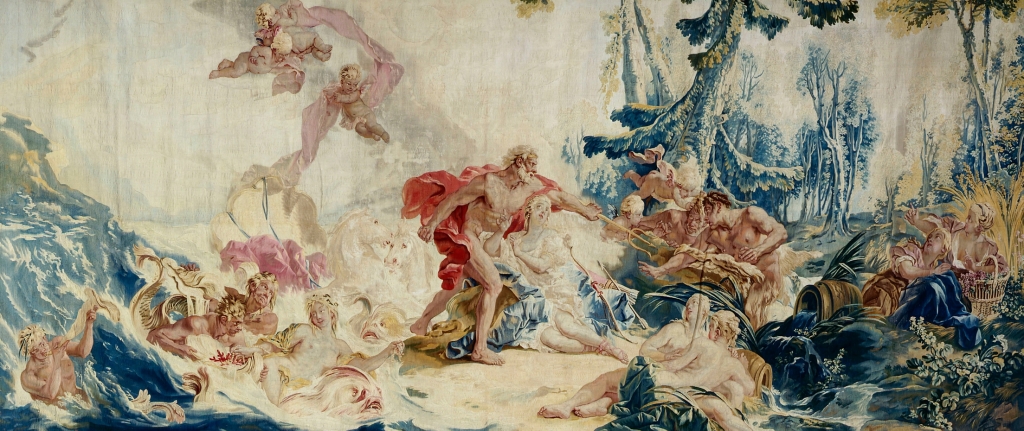Tag: Philosophy
-

Philosophy – “Why Love Isn’t a Choice” – Pt. 2 – 2/15/2024
“Claiming to have done the right thing for someone else had to have been without choice involved. In love, we feel called to do what’s correct. Perhaps not correct or even rational for a hundred or more observers to our actions, though to us, it’s the most rational and logical to acts to do what…
-

Philosophy – “Why Love Isn’t a Choice” – 2/14/2024
“Love can trap. Love can smother. Even when we are outside the presence of whomever we devoted ourselves to, we are remembering them. Even when we are avoiding it, we might come to remember it. We are recalling love, during grief, being the days when we don’t want to love.” – Modern Romanticism While in…
-

Philosophy – “Why Genre Fiction Relies on Literary Fiction” – 2/1/2024
“Imagination is restricted to a world or an environment. Our world can be sculpted into anything, though it’s all interactable. How did that world become sculpted, without human interaction? A human imagined something after they interpreted it. A tree, not created by humans, though by nature, became involved in imaginative, fictional works, after interpretation.” –…
-

Philosophy – “Why There’s No Societal Resolution to Prejudice” – 1/27/2024
“A group or a collective is a simplified complexity. What else could be complex, other than the individual? Among society, people are labelled, generalized, and made simple. But that’s society, where groups of various sizes exist. What could be more complicated than an individual, who takes time to understand?” – Modern Romanticism There had been…
-

Philosophy – “The Core Difference Between Sympathy and Empathy” – 1/26/2024
“What person feels, if not to identify? An empathetic soul is an intimate one. There is no such thing as a loose expression of empathy. One may lose themselves, their own lonesome identification, as a sacrifice when peering too far into someone else’s anguish. That empathetic soul felt too much, not of themselves, though of…
-

Philosophy – “Why Surface-Level Diversity is Harmful” – 12/28/2023
“Outright contrasting two distinct types of diversity, being that of what we know nothing of and what we can know everything about, means that they have nothing to do with each other. Even so, we must think of the former kind as a barrier, though a needed one. While a needed one, it should also…
-

Philosophy – “Why Love Is Often Selfish” – 9/1/2023
“We might tell ourselves that to do what must be done, for another, is a testament to our love for them. In that, we are compensating. For what? For potential loss, of ourselves, of our identity. We hurl ourselves into another to encompass them as we often embrace them, buried under entwined thoughts. In all…
-

Philosophy – “What’s the Reason to Love?” – 8/10/2023
I declare, upon a point I found hindering to decide, that there cannot be a reason to love. No distinguishable, practical reason. There cannot be a useful reason for it in its wide arrangement of symptoms, all discussed of love, as all remain being reminders of what cannot be explained. What would be said? Only…
-

Philosophy – “Why Crisis Reveals Character” – 8/8/2023
“Humans grow like muscles. But during the crisis, we are revealing how much we can lift on our shoulders, can handle in the heat of tension.” Modern Romanticism There has been that saying, “Crisis doesn’t build character. It reveals it.” It is true, I believe, that in our handling of crisis, of conflict, of pain,…
-

Philosophy – “The Origin of Prejudice” – 6/25/2023
“Someone will believe that someone else cannot be prejudiced. Isn’t that to say that this other person is omniscient? Isn’t prejudice just the fear of the unknown, as to know all people, or to be omniscient, would mean to see no differences, and see only similarities?” Modern Romanticism Human beings cope with the idea of…
-

Philosophy – “Why Machines would not Understand Love” – 3/15/2023
“Between the black or the white, there is nothing but everything brought forward from a certain past into an uncertain future.” Modern Romanticism What a machine knows is to compute A or B from a scenario, or from a file where something can be accessed in its objective light. What it cannot do is comprehend…
